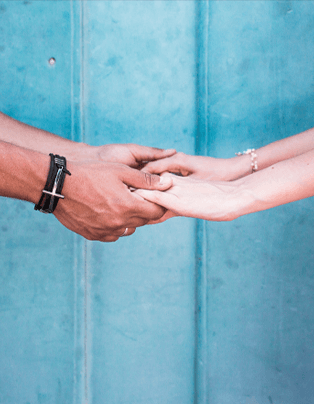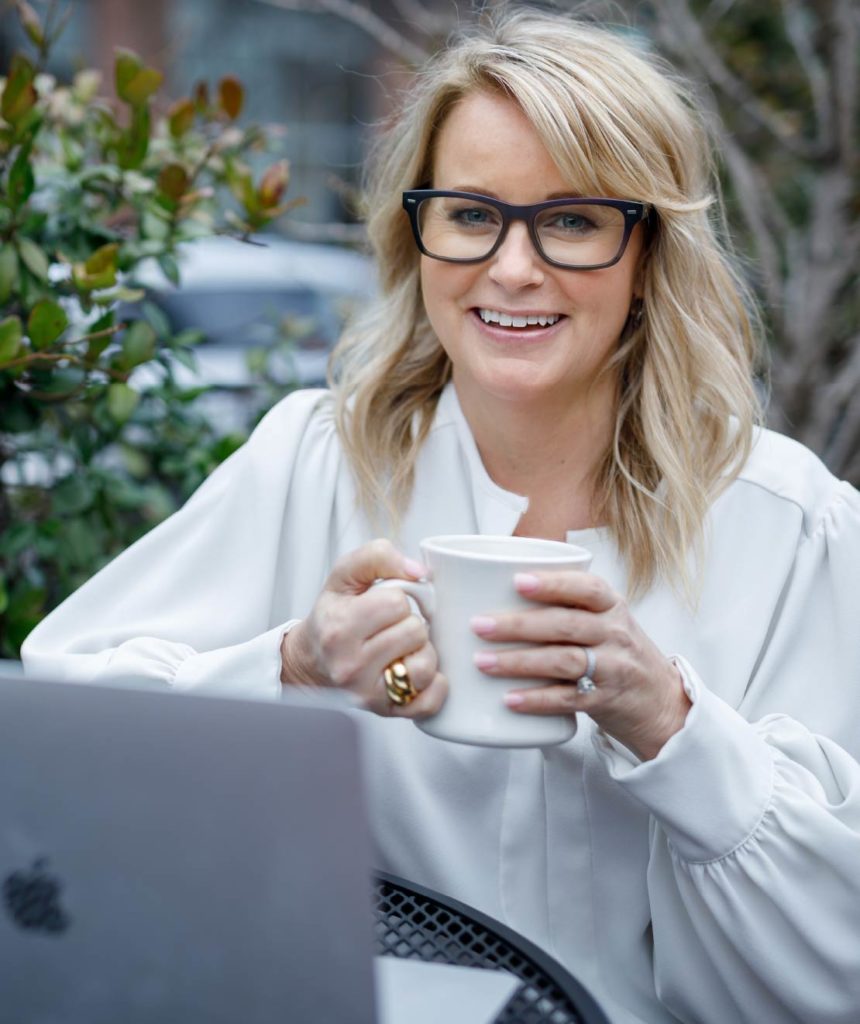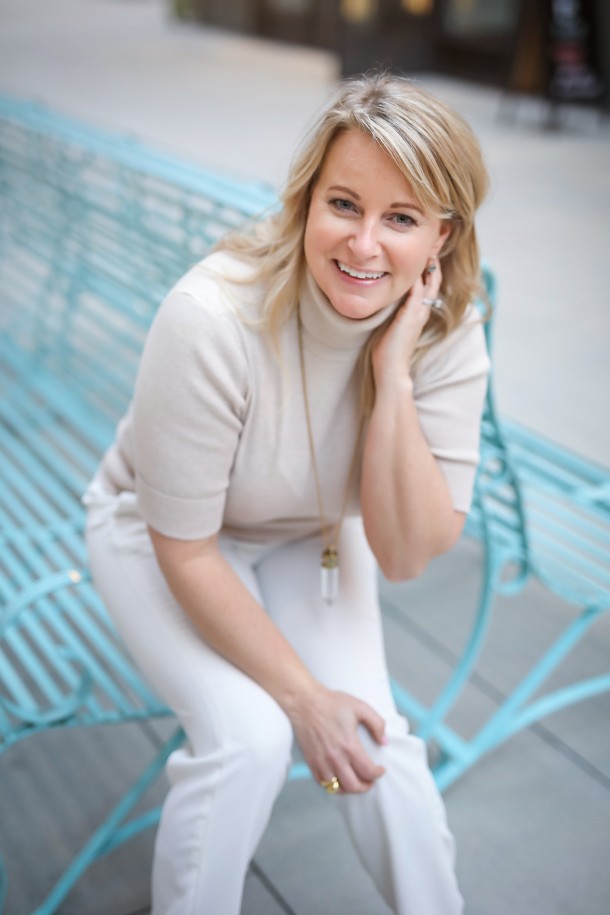Podcast: Play in new window | Download
Subscribe: RSS
In today’s episode, I share some thoughts on how to hold space for someone and truly be a witness in their life and what they are experiencing. It can be a hard thing, to watch someone suffer, and not know what to do. It takes bravery to tell your story and compassion to simply listen and be a compassionate observer.
This episode would be great for anyone going through a hard time who feels the need to say their truth out loud and for anyone who is witness suffering and feels helpless.
I hope that it serves you.
Transcript:
Hey, before we get started on today’s show, I wanted to share with you how I’m working with my clients these days, it’s different than I used to, here’s what I found out was that all of my one on one coaching clients, we would walk through a lot of the same things. And they might hire me for seven or eight sessions. But four or five of them, I was going over a lot of what I felt was like preliminary stuff. So I decided to do my coaching a whole new way. And I created a course module for all of the things that I would normally teach and more, all the things. And now all of my coaching clients get access to all of this amazing information for seven weeks different courses every single week to help them understand their beliefs and break through those beliefs. Learn about EFT and, and other self soothing modalities, we talk about boundaries and asking better questions and learning how to say no understanding your emotions, we go through it all. And then you get the coaching. So it’s this really incredible experience now for all my coaching clients. Anyway, if that’s something that interests you, or you just want to learn a little bit more, head to my website, just go to Betsy Pake calm, you’ll see a contact me form, just fill that out, shoot me a message, and I will send you a link to my calendar and we can chat. Whether you decide to go for the coaching or not. Doesn’t matter to me. I’d really just like to connect with you if you think this is something you’d like to explore, and now on with the show. Welcome to the art of living big. I’m your host, Betsy Pake, and this podcast is designed to share interviews and new ideas to help you redefine what could be possible for your life. Now, let’s go live big. Hey, everybody, welcome to the show today, I want to tell you a story. You know, I’ve talked recently about how my daughter has been sick. And actually I think I’ve mentioned it. Well, I mentioned it on the show back in December, I did a show on struggles. It was back like in the 70 somethings. And I shared some of the story then. But more recently, I’ve shared it more often and really pretty openly, honestly on Instagram,
in my stories, and in a few posts.
And I share a little bit there about what we’re going through and in how my daughter might my only child has a mental illness. Now, let me back up just a little bit. Because I want to share a little bit about this, I want to tell the story. And I think that it’s something that’s pretty powerful that I’ve experienced, that I think might help you too. So my daughter all of his 16. But really, I believe her whole life, I’ve noticed that something was just like a little bit different, not not like in a social way. Like she was never like awkward or anything like that. But more in like a resistance way is the only way I could describe it. So even when she was little, there was a lot of resistance to things that I just, I didn’t seem to notice that my friends were having trouble with their kids having resistance to this. And you know, it was small at first. And so I just figured it was maybe just a quirk and I didn’t pay a ton of attention to it. You know, I know every single kid is different. And I kind of just chalked it up to that. But I guess I’m thinking like maybe like fourth grade or so I noticed it was really hard to do simple things with her. Like, if we went to a restaurant or we’re going on vacation, it just seemed really hard. And I would try and it would always just seem to be like too much. She just didn’t handle it well at all. And it seemed like it was the change like changing environment that kind of made it a little more difficult. Or even like the sounds, lots of times, restaurants would just seem really loud to her like much louder than it would seem to any of us. And by the time she was a teenager, things were getting more and more difficult for her. It was it was heartbreaking. It was so sad to see, but I still didn’t really know. Like what was happening. And since I didn’t have another kid, I didn’t really have anything to compare it to. And I would see my friends on Facebook and it I remember thinking like that, how are they doing that with their kid like something really ordinary and normal, but I was like, that’s not something that I could do. And so by like seventh or eighth grade school had become like really unbearable like the noise and just all of it we had we tried a lot of different things like we tried online school, and a whole bunch of different alternatives. I always described the experience to people as anxiety, because I didn’t really truly know what else to call it. And that seemed like the simplest way to describe it. But by high school, it was becoming more clear to me that like, none of this was normal. And we went, we went to a hell, a lot of doctors, therapists. I mean, I tried every therapy under the sun, like, I mean, well, I tried like crazy diets and trying to control any kind of gluten or excess sugar or food dyes, any of that stuff we used adaptogens I mean, medication, EMDR therapy, cognitive therapy, Emotional Freedom Technique. I mean, like all the things, but nothing was helping. In fact, it seemed like it was quickly getting worse. But finally, after a hospital stay, a therapist suggested that she get an evaluation to see what was wrong. Like, you know, friends, I thought, like all the doctor visits and therapy that all that like someone had evaluated her, but no. So that’s a thing that you have to actually go and ask somebody to do. And apparently, like, by the time you’re teenagers, when they would do it. So we did. And after a few weeks, and lots of interviews and observations, they were able to diagnose her properly, and get the help that she really needs. Now, in the beginning, I was very cautious about sharing any of this well, it evolved from a place that seemed sort of abnormal seemed normal. And it’s her story, right? And so I was concerned about what to share and what not to share. And also, I’m not one to complain and telling people seemed a little bit like complaining to me. Yeah, I mean, a lot like complaining, and you know, a lot. Like, if I said it out loud, it would be true. And if it was true, then I’d have to face it, I’d have to face that something was really wrong, that I wasn’t going to be able to fix.
Life can be super hard. Sometimes nobody has it easy forever. There is always a challenge or a hurdle to get over. That’s what makes us human. And I believe that when you know other people’s stories, it connects us, it makes us not feel so alone, and it makes us see that, hey, it will get better. I’m not alone, and someone else is struggling to. Now, I believe that we are growth seeking beings, right and growth, it just just means a mess. Growth means we go through the muck, and then we’re created into something new, only to start that process all over again,
if you’re lucky,
sometimes the growth is towards something really good, right? So like you’re going through a hard time in school, but you know that there’s an end in sight, and you’re going to be leaving with your degree or sometimes you go through growth and you don’t even know the reason. So you just feel kind of lost or out of control. And that’s what this has felt like to me. I had pizza one day and I put it on my ag stories. I was at the hospital. And like good friends tend to do. They are super sleuths, and a friend noticed. Gosh, I actually think she even noticed the floor looked like a hospital floor. And so she messaged me, and she said, Are you at the hospital? Is everything okay? And so I asked her to call me. And she called me that afternoon. And I told her, I told her the truth. I told her everything. And I talked and talked and I said it all out loud. And even though I’m sure it didn’t make any sense. I didn’t stop. And she just listened. She didn’t try to fix it to just listened. And then she said stuff like, Oh my god, Betsy, I’m so sorry. Or Betsy, I had no idea. She just heard me. She held space for me. Well, I got it all out. I got this secret out in the open so that I could deal with it in a new way. Hiding. It wasn’t helping me. I was trying to be a good parent by not sharing her story. But there was part of her story that was mine. And being silent, wasn’t creating an environment where we could all get help and heal. I learned something that day about holding space. And about being seen. I have a girlfriend who has an autoimmune disease, those things are odd, right? So they’re sort of mysterious, you can’t see them. And I think that even like experts don’t even know that much about them. So like me not being an expert. I know nothing. And this is a fairly new friend. I mean, we talk quite a bit but she lives in a different state. And so one day when I called to check in and say hi, she told me that she wasn’t feeling good. And she explained to me what was happening. I didn’t know that she had this. And I was so grateful for my experience months earlier because I remembered that I didn’t have to fix it. Don’t we all feel like that. If a friend comes to us struggling, we just want to fix it. We just want to have all the answers and just tell them the thing that will help. It’s not true. All we have to do is hold space. And listen. I was quiet, I heard her, I listened. And I agreed with her sounds like it sucks. I am so sorry. I didn’t even asked her if there was anything I could do. I was just there, I knew that if she needed something she would ask I knew that. Because that’s where I was. If I had needed something I would have asked, but what I really needed, that day was exactly what I got, which was someone to just hold space for me in my English, someone to be a compassionate observer. Now, if I had tried to fix it, tried to give her something that would take it away, I would have been making it about me. See, that’s the thing, we’re so uncomfortable when someone else’s hurting, we want to make ourselves feel better by telling them our story,
or telling them an idea or sending them an article on what it could be. Because it can be so uncomfortable to go through that with someone. But if you can, if you can simply allow someone the space to speak their truth, to tell what they’re really going through, whether it’s about their kid, or their job, or their marriage, or their illness or their rape. You don’t have to fix it. You just have to hold the space and allow them to be heard. Be a compassionate observer, because just in doing that, you lighten their load. You help them release some of the emotion that gets trapped in the silence. You become part of the healing by doing nothing, nothing but just being human. Le v. Zell, you may know him. He was a survivor in Auschwitz. And he’s written many books. I’ve seen him on Oprah’s super soul Sundays. They were good friends until he died not long ago, his whole family was killed in Auschwitz and he nearly died. He was a child, profound trauma. He’s written several books on it. And if you read them, you will never be the same. But even he talked about how he waited 10 years before he would talk about it. And he waited until it got too heavy, until the load was so much to bear. And so he had to share his story. Stories are cathartic and it was cathartic for him. And it also helped the whole world understand what he had gone through and helped us to see our whole world differently. All of that because he was brave enough to share his story. And someone held space enough for him to tell it profound. Holding space can help lighten the load and can help them find space to reflect on positive things to when all that junk is out of the way then you open up the door for new thoughts and many times when the load is finally light into the joy can find its way in. You can be a powerful witness in the lives of those people you love. And my friends. That is how you live a big life. Thanks for holding space for me today. I’ll see you next week. Thanks so much for listening. Remember, you can find me all over social media at Betsy Pake and, as always, here’s a little message from my husband.
That’s it.


